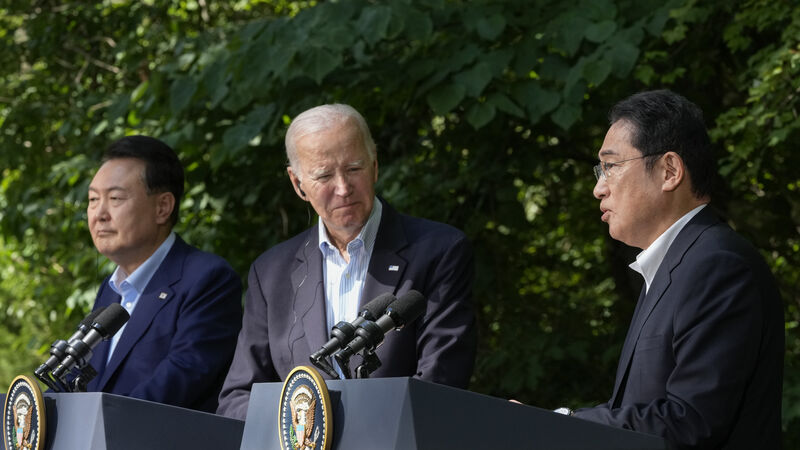US, Japan and South Korea agree to expand security ties at historic summit

US President Joe Biden and the leaders of Japan and South Korea agreed on Friday to expand security and economic ties at a historic summit at the US presidential retreat of Camp David.
Their meeting and agreement come at a time that the three countries are at an increasingly tense point in their relations with China and North Korea.











